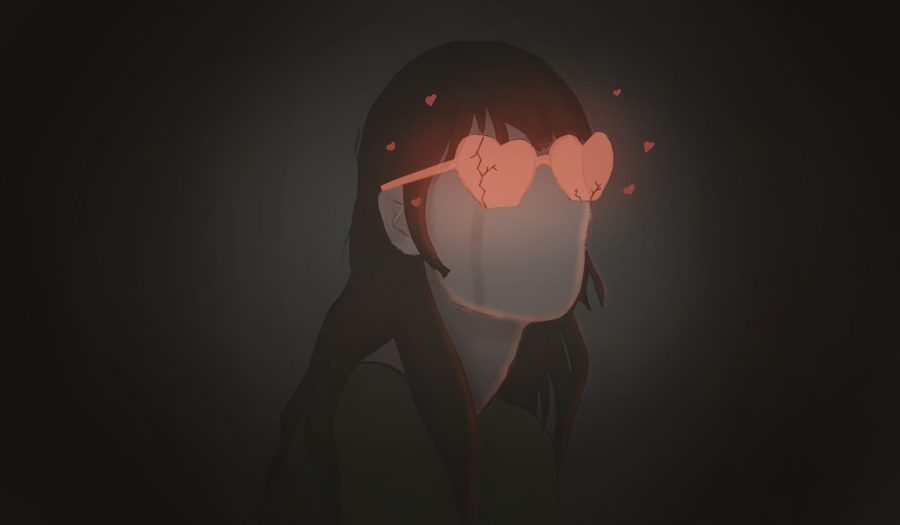From Alex Russo and her werewolf boyfriend to Meredith Grey and Derek Shepherd, we are constantly exposed to “perfectly happy” relationships. From a young age, we are told, not only by the media but also by the people around us that meeting the love of our life is one of the most important milestones we will ever experience.
Not to say that the sentiment is wrong, but with romance occupying an entire genre in books, movies, and television shows, single people are constantly being reminded of their lack of a significant other. Most people cannot help but feel lonely when comparing their lives to those around them, especially with paparazzi covering celebrity relationships and social media being a platform for others to broadcast their happy involvement with others.
According to Julia Lippman, a postdoctoral fellow at the University of Michigan’s Department of Communication Studies, young people’s minds are essentially free for the media to mold. These perfect portrayals of love, whether they be on our TV screens or Twitter feed, have a profound effect on how we feel about ourselves.
“You’re old enough to be interested in figuring out how relationships work but tend to have limited personal experience with dating to draw on,” Lippman said. “Therefore, you turn to media for guidance.” Although it is human nature to compare ourselves to other people’s lives, it is important to understand that relationships are more than cute TikToks and love poems, and we should not use what we see in the media as the standard for what we think love is or when we should find it.
Constantly being exposed to “perfect” and “healthy” relationships creates a false pretense of what an actual healthy relationship looks like. Realistically, couples post only one aspect of their relationship on social media.
Viewers are not given access to the kinds of conversations or real arguments these couples are having outside of a 30-second video. In a Pew Research study about social media and romance among teenagers, 42 percent of teenagers in relationships agree that their significant other shows a different side of themselves on social media than they do in person, and 36 percent agree that their significant other is less authentic and real on social media than they are offline.
Additionally, films and shows may portray fights in their relationships, but for entertainment purposes, the plot is unrealistic in nature. Take “Friends” for example. Rachel’s not taking her dream job in Paris to be with Ross, who has historically been a toxic person to her, is not a story that people should glamorize and hold as the standard for their own relationships.
The show ignores 10 seasons’ worth of Rachel’s character development and the on-and-off relationship with Ross in order to end the series with an endgame couple that intrigues the audience. Realistically, her character would have taken the job, despite being a little torn between her work and Ross.
According to Dr. Marianna Strongin, a clinical psychologist who specializes in therapy for couples and millennials, this limited view of what a relationship looks like can have a “detrimental effect” and “isolate young people even more.”
This issue exacerbates the preexisting problem of our disconnection and lack of intimacy with others due to, but also despite, the increase of technology within the past few decades. In the pursuit of romance, one quickly makes the mistake of thinking a relationship will happen as they have seen on their screens.
The impossible standard we have created for ourselves closes the doors for any potential romantic relationships because we become dismissive of anything harder or less perfect than what is portrayed in the media.
In other words, when the only exposure to relationships one has is through a screen, their standards for one become skewed.
Likewise, the one-sided portrayal of romantic relationships in the media can also cause all expectations and standards to seemingly disappear in a desperate attempt to find any kind of love, regardless if it is authentic, healthy, and reciprocated. The insecurities formed through comparing our lives to the media often lead us to accept toxic love.
Psychologist Jeffrey Bernstein says one of the most significant determinants of whether someone will stay or leave a toxic relationship is what they think they deserve. If being in a relationship is all one can think about or wants, they are more inclined to turn a blind eye to toxic behavior.
“It’s clear that media and film can shape and reinforce prevailing cultural attitudes,” Dr. Silvia Kratzer, Professor of Cinema Studies at the UCLA department of Theater, Film, and Television, said. “Real changes in people’s lives because of pop culture influences are evident — just think of the beauty ideals that have changed so much.”
Combatting this is more than taking everything with a grain of salt. Especially when we are young, it is nearly impossible to not feel lonely during the Valentine’s Day season. However, to avoid engaging in toxic and detrimental behavior, it is important to take a moment and reflect.
Theresa DiDonato, social psychologist and associate professor at Loyola University Maryland, suggests that in order to reconcile our singlehood with the yearning for a relationship, we must reflect on our own fears of being single and re-evaluate them. Focusing on the other social connections one has, discovering and developing one’s own interests and passions, and finding joy in the opportunities that come with being single may help people embrace the many different ways they can live happy and healthy lives.
The media constantly portrays romantic relationships with rose-colored glasses. While there are many genuinely happy couples, we must understand that being in a romantic relationship does not equate to happiness or success. There is underappreciated value in the other types of relationships and the different forms love takes throughout life. Friends and family bonds are often overlooked during our obsession with forming a romantic relationship. By taking time to appreciate the different ways love and support are given, being single doesn’t feel quite lonely.
While it may be difficult to come to terms with, it is essentially healthier to be alone and happy than in a relationship and not. Everyone wants to find love, that is not the issue. It is what comes from our constant pursuit of love and obsession over it where problems arise.
Although love stories in the media are great for entertaining and captivating audiences, most are far from the truth. We should acknowledge the unspoken standards created by these false narratives and work to become content with the other meaningful aspects of our lives.
That said, if you’re feeling lonely this Valentine’s Day, just remember this: while Meredith Grey and Derek Shepherd had an epic love story, one of them was hit by a truck and died.
Art by Ava Bayley for the UC San Diego Guardian.

















